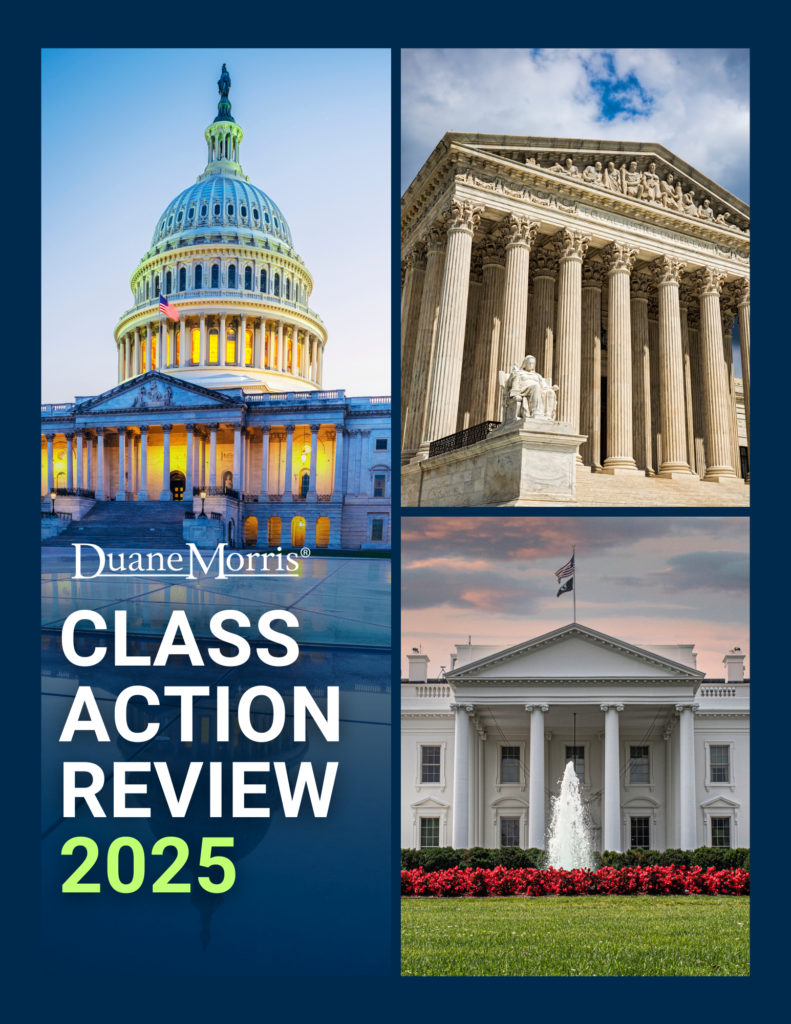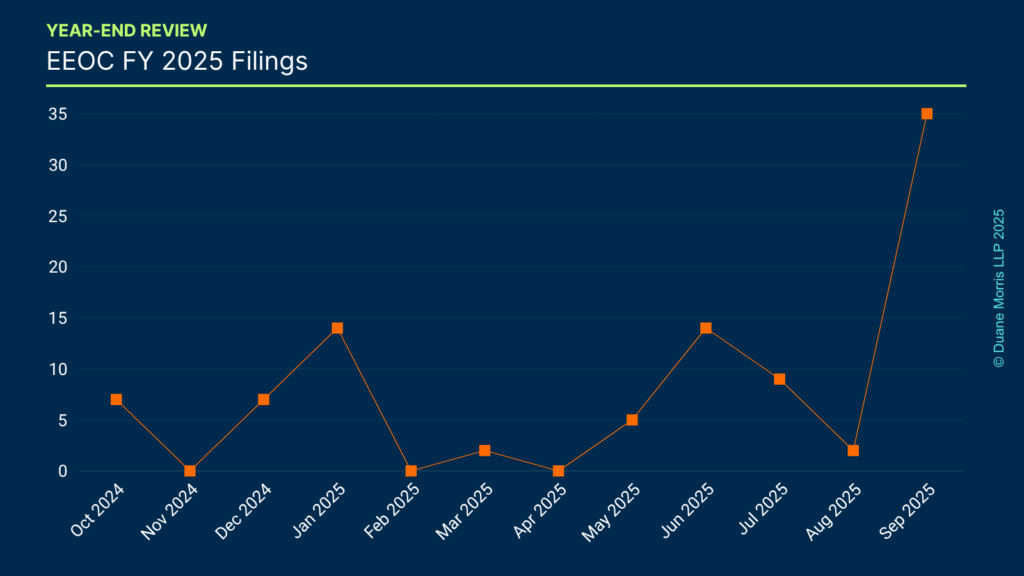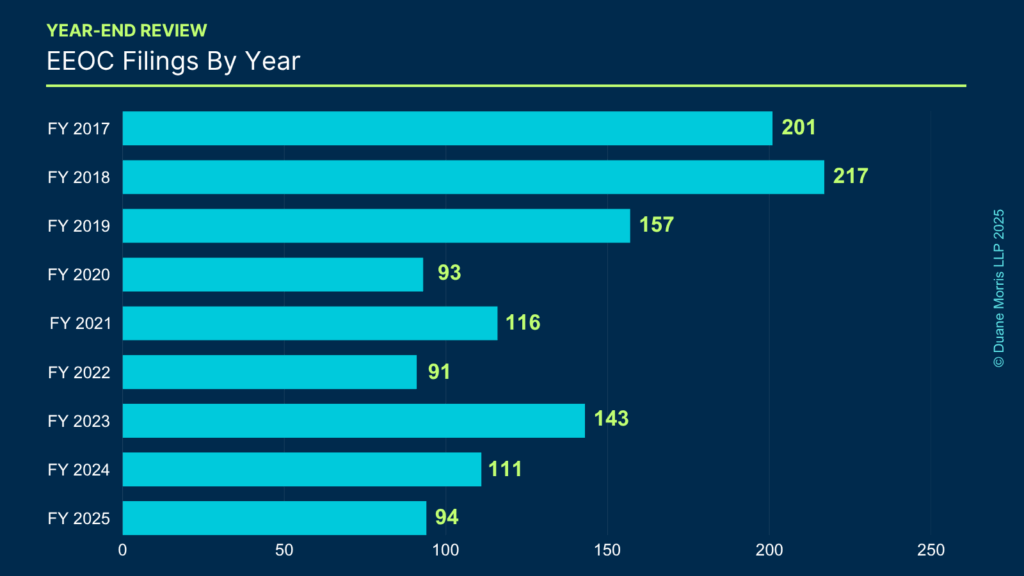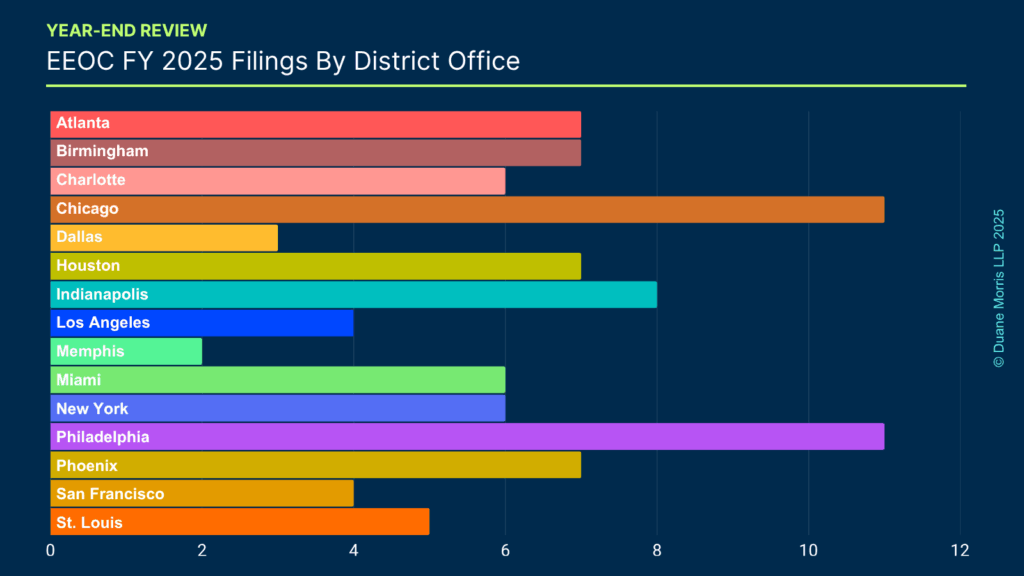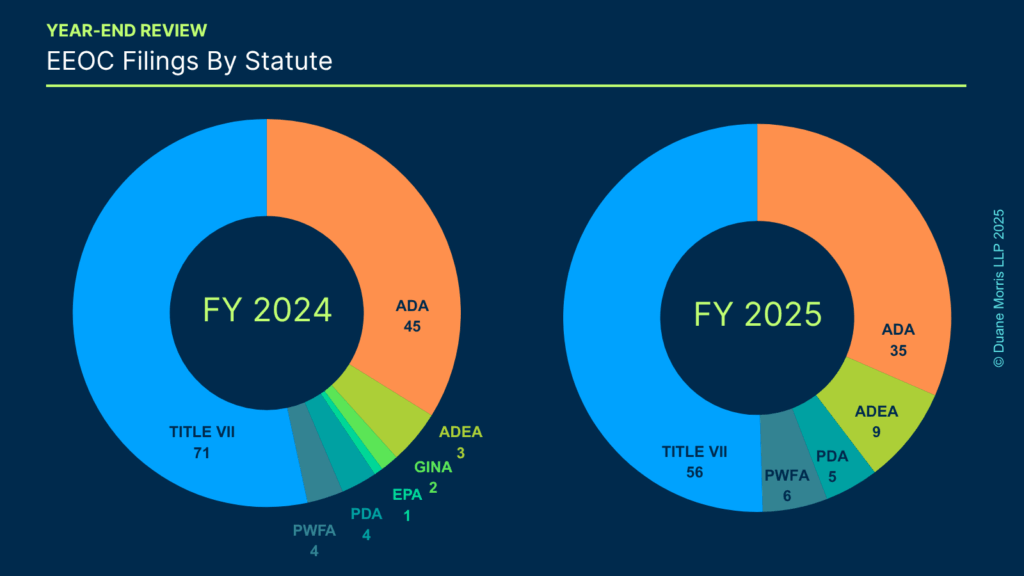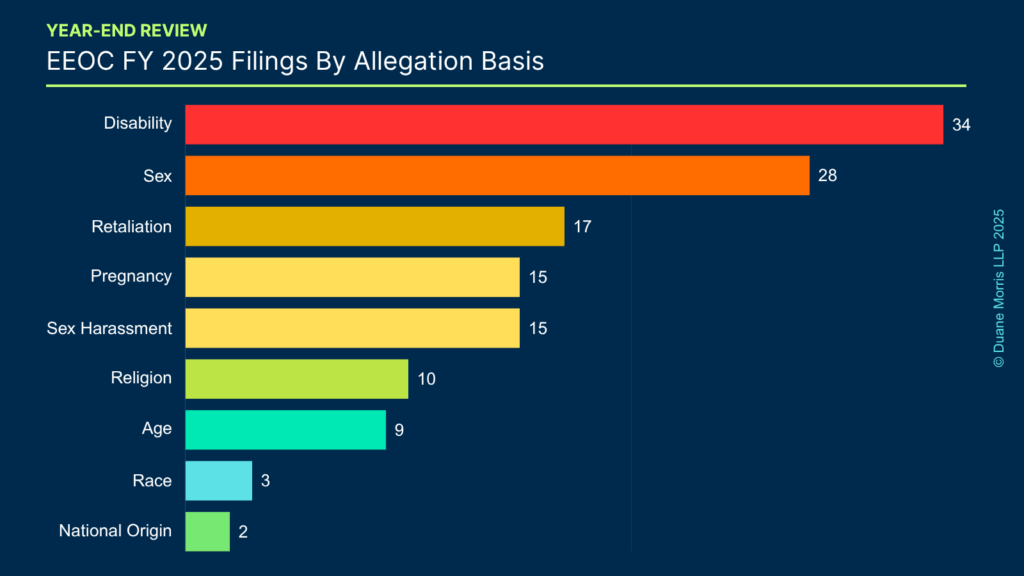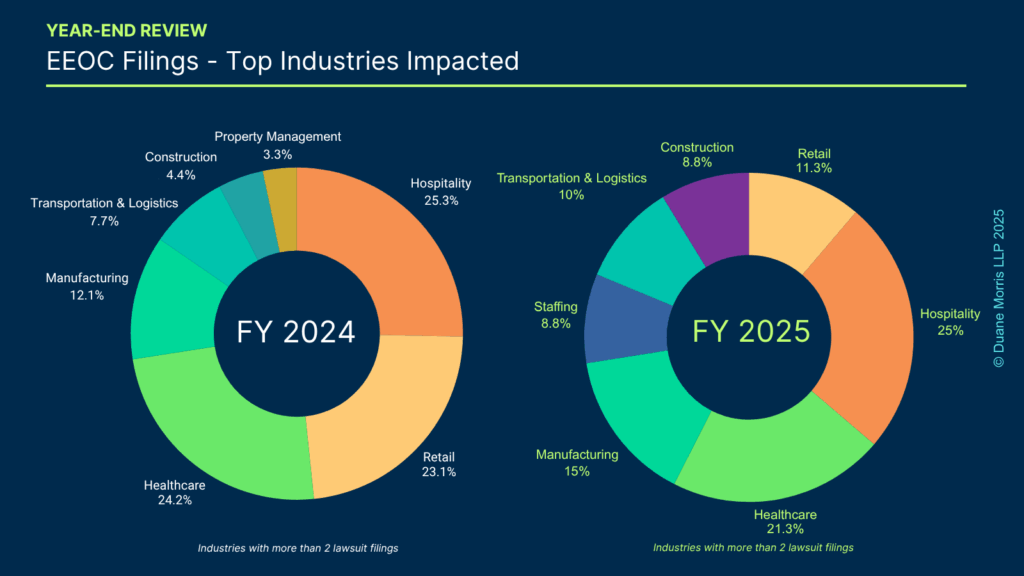By Gerald L. Maatman, Jr., Jennifer A. Riley, and George J. Schaller
Duane Morris Takeaways: On November 19, 2025, in Brown v. Dave & Buster’s of Cal., Inc., Case No. B339729, 2025 Cal. App. LEXIS 750 (Cal. App. Nov. 19, 2025), the California Court of Appeal for the Second Appellate District affirmed a trial court’s decision granting judgment on the pleadings that barred a standalone PAGA plaintiff’s claims for lack of standing and due to a prior global settlement with overlapping claims.
In an important decision for all employers in California, the Court of Appeal recognized a prior PAGA settlement fully encompassed and released the standalone plaintiff’s claims as to all defendant entities. Accordingly, the Court of Appeal affirmed the trial court order finding that the plaintiff did not have standing to sue and her claims were barred by claim preclusion.
Case Background
Lauren Brown worked for Dave & Buster’s of California, Inc. and Dave & Buster’s Inc. (collectively “Buster’s”) in its Westchester restaurant location from November 2016 to April 2018. Id. at *1-2.
In June 2019, Brown filed a standalone representative action under the Labor Code Private Attorneys General Act (“PAGA”) against Buster’s and alleged Buster’s “failed to provide meal periods, rest periods, vacation pay, and wage statements . . . and routinely required employees to work off-the-clock.” Id. at *2.
Buster’s filed a demurrer to abate/stay, or in the alternative, a motion for discretionary stay, and argued that Brown’s action “was between the same parties on the same cause of action in at least two previously-filed actions” in Espinoza v. Dave & Buster’s Management Corporation, Inc., Los Angeles County Superior Court Case No. BC710345, and Lopez v. Dave & Buster’s of California, Inc., et al.,San Diego County Superior Court Case No. 37-2018-00054080-CU-OE-CTL. See Brown, 2025 Cal. App. LEXIS 750at *2. In October 2019, the trial court found Brown’s case was “‘substantially identical’ to the Espinoza action” and sustained Buster’s demurrer and stayed the case. Id.
Buster’s, in February 2020, filed a statement with the trial court concerning additional information on earlier-filed PAGA actions. Buster’s statement included “when each case was filed, when the other plaintiffs submitted their requisite notices to the Labor and Workforce Development Agency (Agency), and which claims overlapped with Brown’s.” See id. at *3. Buster’s disclosed Rocha v. Dave & Buster’s Management Corporation, Inc., Santa Clara County Superior Court Case No. 19CV348961, and Andrade v. Dave & Buster’s Management Corporation, Inc., San Diego County Superior Court Case No. 37-2019-00019561-CU-OE-CTL (“Andrade”). See Brown, 2025 Cal. App. LEXIS 750at *3.
On April 1, 2022, the Andrade parties entered into a long-form settlement agreement with all three Buster’s entities, including those that Brown sued. Included in the released claims was “failure to pay accrued vacation pay at the end of employment, including but not limited to claims under the California Labor Code.” The released claims specifically cited § 227.3 of the California Labor Code regarding vacation pay. Id. at *4-5.
The plaintiff in Andrade moved for settlement approval, showing she notified the Agency of her motion and settlement agreement. The Agency accepted the settlement and did not oppose it. On November 4, 2022, the San Diego Superior Court granted approval of the Andrade settlement. Id.
In April 2023, the parties in Brown’s action notified the court that the Andrade action had settled. Brown alleged there “might not be complete overlap with Andrade as to her unpaid vacation claim, but she was still checking on this issue.” Id. at *4.
Thereafter, in June 2023, Buster’s moved for judgment on the pleadings and argued the Andrade settlement released all of Brown’s claims and that claim preclusion barred Brown’s lawsuit. Id. Buster’s supported its motion with various documents from the Andrade action, including the pre-filing notice to the Agency on May 13, 2019, the Andrade complaint filed on November 14, 2019 (which omitted a vacation pay violation), the amended notice letter to the Agency on February 3, 2022, and the corresponding amended complaint filed in Andrade on March 10, 2022. The amended notice to the Agency added a vacation pay claim, under § 227.3, and added the named defendants in Brown’s case. Id. at *4.
Brown opposed Buster’s motion and asserted she had standing to bring all claims in her PAGA letter because Buster’s violated her rights under the Labor Code. Citing LaCour v. Marshalls of Cal., LLC, 94 Cal. App. 5th 1172 (2023), Brown maintained because the Andrade plaintiff failed to exhaust her claims before the Agency, “she was therefore not deputized to pursue and settle the Labor Code violations in [Andrade’s] amended complaint.” See Brown, 2025 Cal. App. LEXIS 750at *5. Brown also noted the plaintiff in Andrade waited 35 days between sending her amended pre-filing notice and filing her complaint in court, and therefore, the Andrade settlement did not apply to Brown’s §227.3 vacation pay claims against the Buster’s entities Brown sued. Id.
The trial court granted Buster’s motion without written comment, dismissed Brown’s complaint with prejudice, and entered judgment in favor of Buster’s. Thereafter, Brown appealed. Id. at *5-6.
The California Court of Appeal’s Decision
The Court of Appealaffirmed the trial court’s decision, finding Brown lacked standing, claim preclusion barred Brown’s PAGA claims, and the Andrade plaintiff’s failure to wait 65 days to file her amended complaint was a “harmless defect” where the Agency had an opportunity to object to the Andrade global settlement and did not do so.
At the outset, the Court of Appealopined Brown identified no error from the trial court decision and determined Brown “effectively concede[d]” the Andrade settlement resulted in a final judgment on the merits and did not bar her non-vacation pay claims. Id. at *6. The Court of Appealsimilarly rejected Brown’s argument that she had standing to pursue Labor Code violations after November 4, 2022, the date after court approval of the Andrade settlement, because her employment with Buster’s ended in 2018. Id. at *6-7.
The Court of Appealconsidered the sole issue as — “did Andrade’s failure to adhere strictly to the 65-day waiting period for her amended claims defeat Buster’s claim preclusion argument?” Id. at *7. In determining this question, the Court of Appealexplained § 2699.3 of the Labor Code provides “if the Agency does not respond within 65 calendar days of an aggrieved employee providing it with written notice, ‘the aggrieved employee may commence a civil action.’” The crux of the Court of Appeal’sdecision centered on Andrade’s amended complaint which was filed “fewer than 65 days after her amended notice to the Agency.” Id.
The Court of Appealreasoned claim preclusion “bars a new lawsuit if the first case had (1) the same cause of action; (2) between the same parties, or parties in privity; and (3) a final judgment on the merits” and noted the doctrine “promotes judicial economy by requiring all claims based on the same cause of action that were or could have been raised to be decided in a single suit.” Id.
Brown argued LaCour, 94 Cal.App.5th 1172 (2023), controls and suggested the Court of Appealfind the Andrade settlement “does not bar her vacation pay or reach the Buster’s defendants in [Brown’s] case because [the] Andrade [plaintiff] filed her second amended complaint only 35 days after submitting her amended presuit notice to the agency.” See Brown, 2025 Cal. App. LEXIS 750at *7-9. The Court of Appeal interpreted Brown’s reliance on LaCour to suggest the plaintiff in Andrade “was never authorized to pursue the additional vacation pay claim and new defendants in her amended complaint” which would necessarily encompass Brown. Id. at *9.
Buster’s contended LaCour is “‘completely inapposite’ and factually distinguishable” given “Andrade’s initial notice letter, initial complaint, amended notice letter, and amended complaint ‘expressly include all of Brown’s alleged Labor Code violations such that they encompass Brown’s entire PAGA claim.’” Buster’s additionally contended “Andrade’s failure to abide by the 65-day waiting period is a technicality” and “not dispositive as to the issue of administrative exhaustion under PAGA.” Id.
The Court of Appealdetermined on the “administrative exhaustion issue, LaCour does not apply” and California’s Supreme Court has described “PAGA’s statutory pre-filing notice requirement as a ‘condition of suit.’” Similarly, the Court of Appealreasoned the purpose of PAGA’s pre-filing notice requirement is to afford “the Agency ‘the opportunity to decide whether to allocate scare resources to an investigation…’” Id. at *11. It explained “[n]othing in the statute’s language or any published case law suggests the 65-day waiting period also applies to amended notices and complaints.” Id. Accordingly, the Court of Appealfound “Andrade’s failure to wait 65 days was a harmless defect” and the “Agency accepted Andrade’s global settlement with Buster’s after it had an opportunity to object.” Id. at *12.
In sum, the Court of Appeal held “Andrade’s settlement fully encompassed and released Brown’s claims as to all Buster’s entities, thus satisfying all elements of claim preclusion” and affirmed the trial court’s decision.
Implications For Employers
Employers facing PAGA litigation can rely on Brown for support that prior settlements have a preclusive effect where, as here, the prior settlement and second lawsuit have overlapping claims.
Brown also supports the proposition that PAGA’s 65-day notice waiting period requirement for filing suit may not apply to amended PAGA notices. In another win for employers, the Court of Appeal found the plaintiff in Brown could not recover for periods after she left the company in 2018 – thereby limiting the scope of PAGA penalties further.
Given the myriad issues employers defend against in PAGA litigation, this decision signals an important strategic consideration in defending overlapping PAGA actions. Employers when faced with multiple PAGA actions must consider the sequencing of PAGA settlements and whether an already settled PAGA action can create a preclusive effect barring a separate PAGA action.


